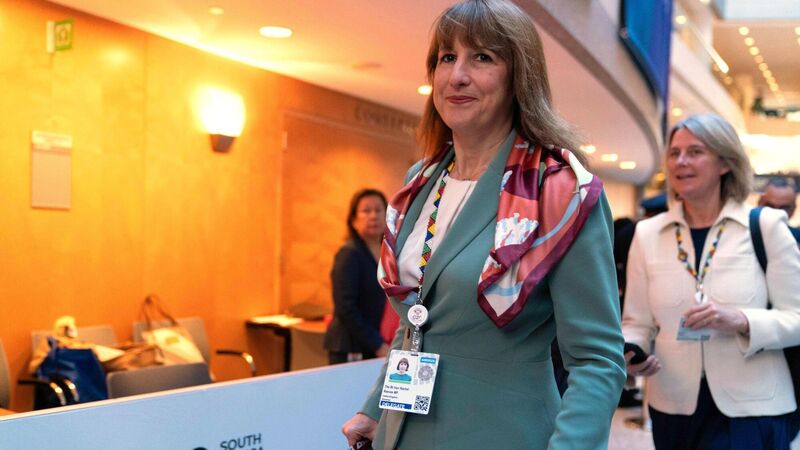David McNamara: UK chancellor Rachel Reeves faces difficult budget balancing act

British chancellor Rachel Reeves at a G20 meeting in Washington last week. Ms Reeves must shepherd an economy which continues to churn out mediocre growth ahead of next month's budget. Picture: AP Photo/Jose Luis Magana
Ahead of an expected difficult budget on November 26, UK chancellor Rachel Reeves must shepherd an economy which, while resilient, continues to churn out mediocre growth.
Last week’s UK labour market and GDP data provided the latest snapshot of activity in the economy, and paints a nuanced picture, better than some of the more hellish narratives surrounding the UK economy at present.











